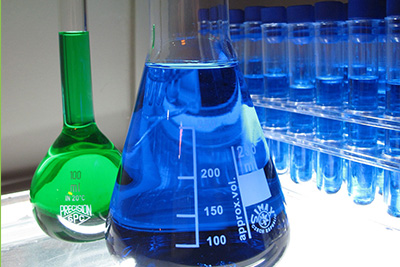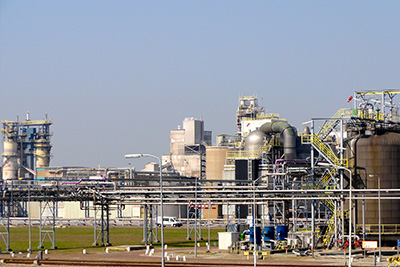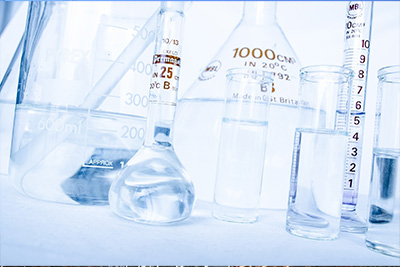-
![Analytical Techniq···]() 2024-11-13 Analytical Techniques for Detecting ···
2024-11-13 Analytical Techniques for Detecting ···This review examines various analytical techniques for detecting methyltin mercaptide residues in plastic products. Key methods include gas chromatography-mass spectrometry (GC-MS), high-performance liquid chromatography (HPLC), and spectroscopic techniques such as Fourier-transform infrared spectroscopy (FTIR). The study highlights the importance of these methods in ensuring product safety and environmental protection, discussing their advantages, limitations, and applications. Advancements and future directions in analytical methodologies are also explored to enhance detection sensitivity and accuracy.
read more > -
![Heat Stability Per···]() 2024-11-13 Heat Stability Performance of Methyl···
2024-11-13 Heat Stability Performance of Methyl···The study investigates the heat stability performance of methyltin mercaptide, a common heat stabilizer, in Polyvinyl Chloride (PVC) products under various processing conditions. Results indicate that the thermal stability of PVC significantly varies with changes in processing parameters such as temperature and duration. Notably, methyltin mercaptide demonstrates effective stabilization at optimal conditions but shows decreased efficiency under extreme temperatures or prolonged exposure, highlighting its critical role in maintaining PVC product integrity during manufacturing processes.
read more > -
![Comparative Enviro···]() 2024-11-13 Comparative Environmental Safety of ···
2024-11-13 Comparative Environmental Safety of ···This study evaluates the environmental safety of methyltin mercaptide in comparison with other organotin stabilizers used in the plastics industry. The analysis reveals that methyltin mercaptide exhibits lower toxicity and bioaccumulation potential, making it a more environmentally friendly alternative. Key factors assessed include aquatic toxicity, soil contamination risks, and human health impacts. Overall, methyltin mercaptide demonstrates superior environmental performance, highlighting its potential as a safer choice for plastic manufacturing applications.
read more > -
![The Role of Methyl···]() 2024-11-13 The Role of Methyltin Mercaptide in ···
2024-11-13 The Role of Methyltin Mercaptide in ···Methyltin mercaptide plays a crucial role in reducing volatile organic compounds (VOCs) emissions during polyvinyl chloride (PVC) processing. As an efficient stabilizer, it effectively inhibits the decomposition of PVC, thereby minimizing the release of harmful VOCs. This not only enhances the environmental sustainability of PVC production but also improves product quality and safety. The application of methyltin mercaptide represents a significant advancement in addressing air pollution associated with industrial plastic manufacturing processes.
read more > -
![Regulatory Standar···]() 2024-11-13 Regulatory Standards for Methyltin M···
2024-11-13 Regulatory Standards for Methyltin M···This article discusses the regulatory standards governing the use of methyltin mercaptide in industrial applications, focusing on safety measures, compliance requirements, and future trends. It highlights the chemical's effectiveness alongside potential health and environmental risks, emphasizing the need for stringent regulations to ensure safe handling and disposal. The paper also explores upcoming trends aimed at improving safety protocols and reducing ecological impact, providing insights into regulatory updates and industry practices.
read more > -
![Understanding the ···]() 2024-11-13 Understanding the Mechanisms of Meth···
2024-11-13 Understanding the Mechanisms of Meth···The interaction between methyltin mercaptides and polyvinyl chloride (PVC) is examined to understand its impact on the thermal decomposition of PVC. The study reveals that methyltin mercaptides form complexes with PVC, affecting its thermal stability. This interaction alters the degradation pathways, leading to changes in the decomposition products. The findings provide insights into the mechanisms underlying these chemical interactions, which are crucial for optimizing the performance and durability of PVC materials in various applications.
read more > -
![Chemical Structure···]() 2024-11-13 Chemical Structure and Properties of···
2024-11-13 Chemical Structure and Properties of···The chemical structure and properties of methyltin mercaptide reveal its potential for industrial applications, particularly in stabilizing polyvinyl chloride (PVC). This compound exhibits notable thermal stability and resistance to degradation, crucial for PVC applications. Its molecular configuration facilitates efficient interaction with PVC molecules, enhancing material durability and longevity. These attributes make methyltin mercaptide a promising candidate for use in the manufacturing processes of PVC products, ensuring improved performance under various environmental conditions.
read more > -
![Optimizing Methylt···]() 2024-11-13 Optimizing Methyltin Mercaptide Dosa···
2024-11-13 Optimizing Methyltin Mercaptide Dosa···This study focuses on optimizing the methyltin mercaptide dosage to improve the thermal stability of both rigid and flexible polyvinyl chloride (PVC) materials. The research explores the impact of varying concentrations of methyltin mercaptide on the thermal performance of PVC, aiming to identify the optimal dosage that maximizes stability without compromising other material properties. Through comprehensive thermal analysis, the study provides valuable insights for enhancing the durability and longevity of PVC products in various applications.
read more > -
![Advancements in Me···]() 2024-11-13 Advancements in Methyltin Mercaptide···
2024-11-13 Advancements in Methyltin Mercaptide···Recent developments in the synthesis of methyltin mercaptides have led to improved methodologies that significantly enhance the purity and performance of these compounds. New techniques focus on optimizing reaction conditions and purification processes, resulting in higher yields and superior product quality. These advancements are crucial for applications in areas such as catalysis, polymerization, and biocides, where high purity and consistent performance are essential. The refined methods not only increase efficiency but also reduce environmental impact through minimized waste and energy consumption.
read more >








